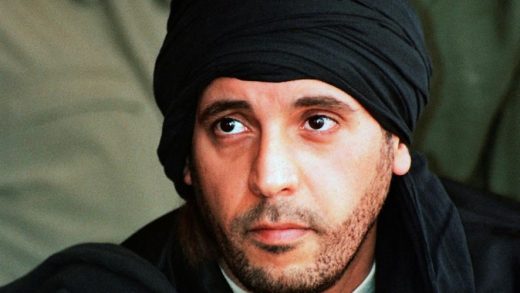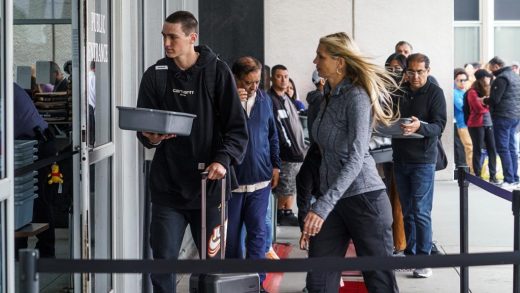In the midst of a meth binge, Christian Bruce aimed a sawed-off rifle at the head of a man he considered a friend and shot him dead.
More than two years later, Bruce told a court Tuesday he thinks about Vincent Ross every day but could offer no explanation why he took his life.
“I know no matter how many times I apologize I won’t bring him back,” he told a court gallery crowded with Ross’s family members. “I don’t deserve forgiveness.… Because of my actions, you lost someone very important to you. There is no justification for what I did.”
JESSE BOILY / FREE PRESS FILES
Christian Bruce admitted shooting Vincent Ross at a College Avenue apartment known to be a street-gang drug house but claimed he did not intend to kill him.
Bruce, 30, stood trial for first-degree murder in the March 16, 2020 killing but on the second day of testimony last fall admitted to second-degree murder in a plea bargain with the Crown.
Bruce admitted shooting 24-year-old Ross at a College Avenue apartment known to be a street-gang drug house but claimed he did not intend to kill him.
Court heard Tuesday that Bruce arrived at the building in search of meth and when he learned Ross was in a downstairs apartment went there and shot him.
At trial, witness Ralph Zebrasky testified he was present with several other people when Bruce walked in, pulled out the sawed-off rifle and shot Ross as the man and his girlfriend were sitting in the living room.
Bruce “shot him right there in front of us,” Zebrasky told court.
The minimum sentence for second-degree murder is life in prison with no chance of parole for 10 years. Prosecutors on Tuesday urged Queen’s Bench Justice Anne Turner to increase Bruce’s period of parole ineligibility to 17 years, arguing the longtime gang member has a lengthy record for violence and has squandered numerous opportunities for rehabilitation.
Court heard Bruce was placed in foster care when he was three months old, spending time in 13 foster homes by the time he was 11 years old. Bruce suffered physical, mental and sexual abuse while in care and was abusing drugs and alcohol by the time he was 13.
Bruce’s “horrific upbringing” was the only mitigating factor in the case,” said Crown attorney Erika Dolcetti.
“At some point he is going to have to stop relying on his past and present for his future offending,” she said.
Defence lawyer Eric Wishnowski asked that Turner not increase Bruce’s period of parole ineligibility beyond the minimum 10 years, arguing his crime must be viewed through the lens of centuries of systemic racism that have subjugated Indigenous peoples, robbed them of opportunities and placed them in the crosshairs of the justice system.
“For young Indigenous males this is happening far too often,” Wishnowski said.
Bruce and Ross “were friends, they had hung out,” Wishnowski said. Bruce didn’t go to the drug house intending to harm anyone, but after learning Ross was present, he “was triggered.”
“He (made) this ultimate rash decision that he has to live with the rest of his life,” Wishnowski said. “Mr. Bruce recognizes the horrible crime he committed, but I think there is still room for hope.”
Turner will sentence Bruce Aug. 5.

Dean Pritchard
Courts reporter
Someone once said a journalist is just a reporter in a good suit. Dean Pritchard doesn’t own a good suit. But he knows a good lawsuit.
Read full biography


